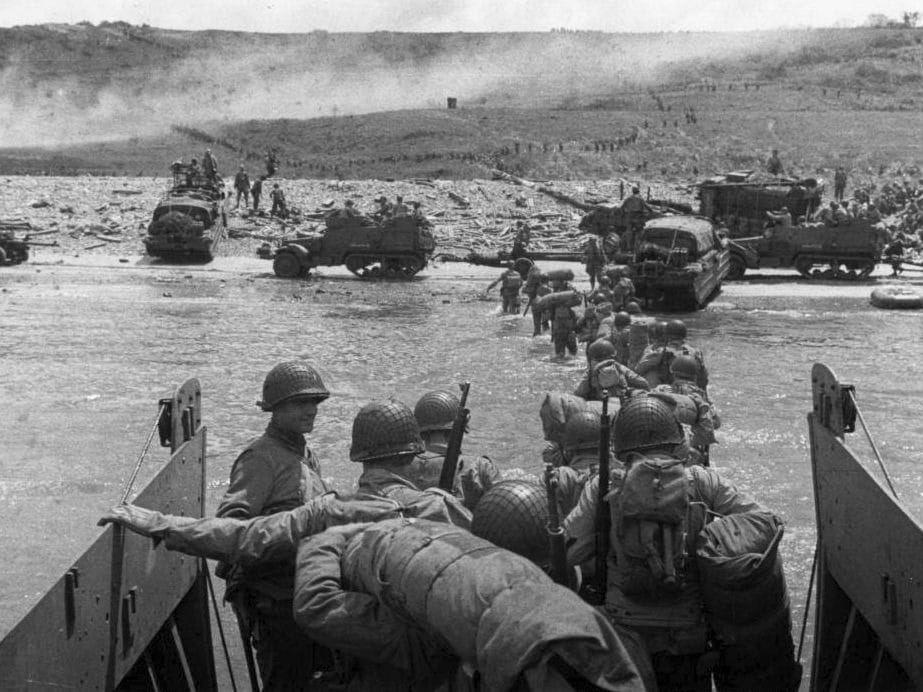In honor of D-Day 75 years ago, French President Emmanuel Macron summoned the world to perpetuate the Allied nations' hard-won "heritage of peace" by sustaining transatlantic alliances and international organizations such as the United Nations, NATO and European Union.
Macron turned the global spotlight of the Normandy ceremonies on Thursday to the unfathomable sacrifices and international cooperation that made possible the post-World War II era of prosperity and multilateralism, just as Queen Elizabeth II did in the presence of U.S. President Donald Trump earlier in the week.









